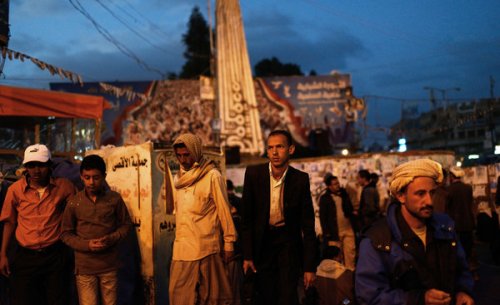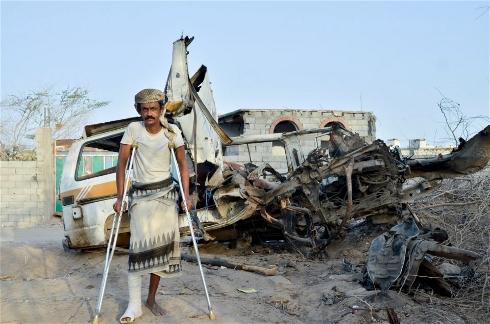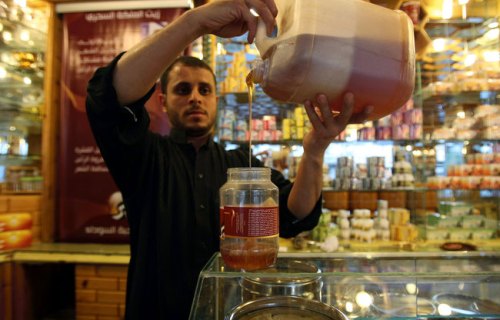
Samuel Aranda/New York Times/http://www.nytimes.com/2013/02/19/world/middleeast/yemen-hailed-as-a-model-struggles-for-stability.html?pagewanted=all&_r=0
Highlights:
Yemen, Hailed as Model, Struggles for Stability
New York Times — 18 February 2013
“I have never felt the anxiety I feel now,” said Sami Ghalib, a political analyst and former newspaper editor. “There was always geographical conflict, but now it is turning ideological. There are assassinations taking place everywhere. And at the helm, we have a leader who behaves like Saleh but doesn’t even have his political skills.” Unlike his predecessor, Mr. Hadi is a virtual recluse who rarely speaks in public and has failed to offer a clear vision for addressing any of the crises afflicting the country. His fierce praise for the American drone-strike program, which is unpopular here, has further eroded his small base of public support. He is widely said to fear for his life and has appointed many family members and old allies to security positions. In a paradox, Mr. Hadi is a southerner and was chosen in part on the premise that this would help him to placate the secessionists. Instead, he is widely hated in the south, in part because he is seen as a pillar of the northern political system after serving for 18 years as Mr. Saleh’s deputy.
Saleh ‘albatross’ hangs over Yemen dialogue
Democracy Digest — 14 February 2013
The fly in the ointment is former President Saleh who continues to hold court with supporters and issue pronouncements through the media outlets controlled by his son, Ali Ahmed. While not overtly disruptive, his presence is a provocation that, over time, could threaten to derail the fragile political truce currently holding sway.
Youths are changing Yemen’s political landscape
Daily Star — 13 February 2013
Murad, an artist, joined with other young artists to raise awareness around the issue of forced disappearances, which have been occurring in Yemen since the 1970s. Over a 20-week period, they drew the faces of almost 70 missing persons on the walls of Sanaa, Ibb and Taiz as part of a voluntary initiative using art as a peaceful tool in order to send a strong message regarding a topic that has remained hidden in Yemen for decades. In this way, Murad and his friends were able to help the families of the disappeared raise their voices, grieve openly and present their cases to the public. These youths are forward thinking, creative, passionate, self-motivated, result-oriented, fast learners and have the energy and time to participate in new ventures. Youth are the real asset of Yemen today, and the real builders of Yemen’s tomorrow. Continue reading



